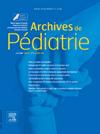Evaluation of professional practices in the use of mexiletine for the management of childhood myotonia in French pediatric neuromuscular centers (MEXI-PEDI survey)
IF 1.3
4区 医学
Q3 PEDIATRICS
引用次数: 0
Abstract
Background
Myotonia is the main feature of both myotonic dystrophy (DM) and non-dystrophic myotonia (NDM). It is felt as stiffness, pain, fatigue, and weakness. In France, mexiletine, a non-selective voltage-gated sodium channel blocker, is approved for the treatment of myotonia in adults with NDM, and it has a temporary recommendation for use in the symptomatic treatment of DM in adults. However, it is not currently licensed for treating myotonia in children due to the lack of studies on its use in pediatrics. This has meant heterogeneous practices in its utilization and has led to prescriber reluctance, which has jeopardized accessibility. We undertook a professional practice survey of French pediatric neuromuscular centers to determine their prescribing habits for mexiletine, assessing indications, doses, efficacy, and tolerance.
Methods
One medical pediatric professional from each French pediatric neuromuscular center belonging to the national neuromuscular network (FILNEMUS) was invited to complete an anonymous questionnaire.
Results
In total, 34 healthcare professionals responded. Of these, 16 had already treated a child for myotonia with mexiletine. Mexiletine was prescribed in one third of pediatric patients with NDM, but it was used in only 3% of DM type 1 patients and in no DM type 2 patients. Pre-treatment assessment always included a cardiac evaluation; however, the method of introduction (inpatient vs. outpatient basis), dosage adjustment, and efficacy evaluation ranged widely. More than half of the respondents reported a high efficacy of mexiletine in their patients; only three reported moderate adverse events (dyspepsia, loss of appetite, and asthenia).
Conclusion
The findings of this first survey on mexiletine for pediatric myotonia in France lend support for the creation of future national guidelines.
评价在法国儿童神经肌肉中心使用美西汀治疗儿童肌强直的专业实践(MEXI-PEDI调查)。
背景:肌强直是肌强直性营养不良(DM)和非营养不良性肌强直(NDM)的主要特征。它表现为僵硬、疼痛、疲劳和虚弱。在法国,美西汀(一种非选择性电压门控钠通道阻滞剂)被批准用于治疗成人非糖尿病性肌强直,并暂时推荐用于成人糖尿病的对症治疗。然而,由于缺乏对其在儿科应用的研究,它目前尚未被许可用于治疗儿童肌强直。这就意味着在其使用中存在不同的做法,并导致开处方者的不情愿,从而损害了可及性。我们对法国儿童神经肌肉中心进行了一项专业实践调查,以确定他们开美西汀的习惯,评估适应症、剂量、疗效和耐受性。方法:来自法国国家神经肌肉网络(FILNEMUS)所属的每个儿童神经肌肉中心的一名儿科医学专业人员被邀请完成一份匿名问卷。结果:共有34名医护人员回应。其中,16人已经用美西汀治疗过一个患有肌强直的孩子。三分之一的非糖尿病儿童患者使用美西汀,但只有3%的1型糖尿病患者使用美西汀,没有2型糖尿病患者使用美西汀。治疗前评估总是包括心脏评估;然而,引入方法(住院与门诊)、剂量调整和疗效评估差异很大。超过一半的应答者报告美西汀对他们的病人有很高的疗效;只有3例报告了中度不良事件(消化不良、食欲不振和虚弱)。结论:法国关于美西汀治疗小儿肌强直的首次调查结果为未来国家指南的制定提供了支持。
本文章由计算机程序翻译,如有差异,请以英文原文为准。
求助全文
约1分钟内获得全文
求助全文
来源期刊

Archives De Pediatrie
医学-小儿科
CiteScore
2.80
自引率
5.60%
发文量
106
审稿时长
24.1 weeks
期刊介绍:
Archives de Pédiatrie publishes in English original Research papers, Review articles, Short communications, Practice guidelines, Editorials and Letters in all fields relevant to pediatrics.
Eight issues of Archives de Pédiatrie are released annually, as well as supplementary and special editions to complete these regular issues.
All manuscripts submitted to the journal are subjected to peer review by international experts, and must:
Be written in excellent English, clear and easy to understand, precise and concise;
Bring new, interesting, valid information - and improve clinical care or guide future research;
Be solely the work of the author(s) stated;
Not have been previously published elsewhere and not be under consideration by another journal;
Be in accordance with the journal''s Guide for Authors'' instructions: manuscripts that fail to comply with these rules may be returned to the authors without being reviewed.
Under no circumstances does the journal guarantee publication before the editorial board makes its final decision.
Archives de Pédiatrie is the official publication of the French Society of Pediatrics.
 求助内容:
求助内容: 应助结果提醒方式:
应助结果提醒方式:


